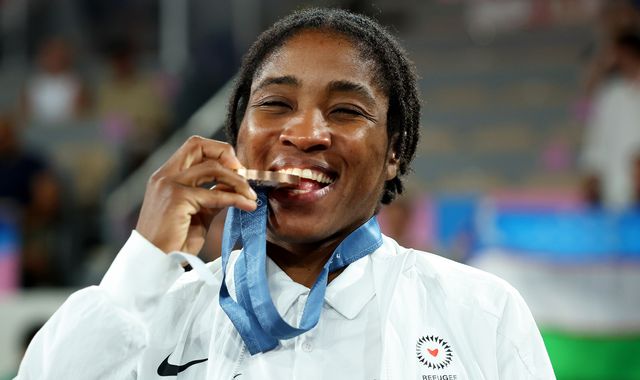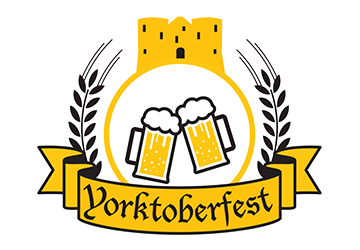She starred at Paris 2024 when she became the first-ever medalist for the Refugee Olympic Team. But earlier this year an issue with a medical forced her to withdraw on the eve of her professional debut.
This week she has been supporting a charity ‘box-a-thon’ in which GB coaches, supported by various boxers, did 50 rounds of bagwork to raise money for Sheffield Mind, which provides mental health support and wellbeing services across the city, and Roundabout, which works to prevent youth homelessness in South Yorkshire.
- Lauren Price’s Principality Stadium dream – ‘It’s possible. I believe!’
- NHS facility opens boxing gym for first time in UK
- Not got Sky? Get Sky Sports or stream with no contract on NOW
“I will not be able to handle 50 rounds! Three minutes they’re doing and they’re doing it at a good pace too,” Ngamba told Sky Sports.
“There’s loads of people out there struggling mentally and also people who don’t have shelter over their heads.
“We’re putting the sweat into how they feel for people who are struggling out there.”
The charity drive is for a cause close to Ngamba’s heart.
It’s all too tempting for a boxer to refuse to admit to pain, whether it be physical or mental. But Ngamba says: “Mental health is very, very important.
“Boxers, we are human at the end of the day,” she continued. “I’ve struggled with mental health. Mental health is a normal thing, I always say it’s never going to disappear but I think it’s how you go about [it], whether you just lock it all in and don’t talk about it and you don’t express the way you feel and then one day out of the blue, it explodes.
“A lot of people struggle with mental health.”
High-profile athletes, especially boxers, speaking out about mental health issues does have an impact.
“Key role-models, and superstars, the more of them talk about it, the more people pay attention to it, the more normal people like us [can think] you know what if these people struggle with their mental health that means it’s okay for us to speak about it,” Ngamba reflected.
“I used to be the type of person who didn’t talk about it. The more you talk about it, the more you feel free and the more it’s like a massive weight taken off your shoulders. It’s not weakness, it’s not something that should be embarrassing, I see it just as a human thing.”
That wasn’t always easy for Ngamba.
“I’m not going to speak for every boxer. For myself it is something hard, especially as boxing is a very intense and hard sport. It’s very physical. You don’t really want to talk about your mental health and how you’re feeling etc, you just want to get on with it. And also it’s the old mindset, the old way,” she explained.
“From a young age I always thought just get on with it and as you get a bit older, you get a bit more expressive and the more you learn about just life in general. Role-models in boxing talk about their mental health, they talk about issues that they’ve gone through, losses and injuries.
“You feel anxious, you feel scared, it’s something that a lot of boxers struggle with.”
Attitudes though, she senses, are shifting in the sport. “I think more boxers are opening up a bit. The new generation definitely,” Ngamba said.
“The coaches too are actually taking their time to speak to the boxers, trying to understand them in boxing and outside boxing.
“I was afraid once to talk about it, in a way of I would only talk to my family about it but I would never bring it up to coaches because you don’t want to be the attention seeker.
“You think: ‘I don’t want to become the attention seeker, that just shows I’m going to be weak, I’m just complaining for no reason, just get on with it.’
“It’s very much a human thing. That’s what makes you human. You become at peace with yourself and everything just feels right, everything starts clicking, once you talk about your emotions, express it.”









































